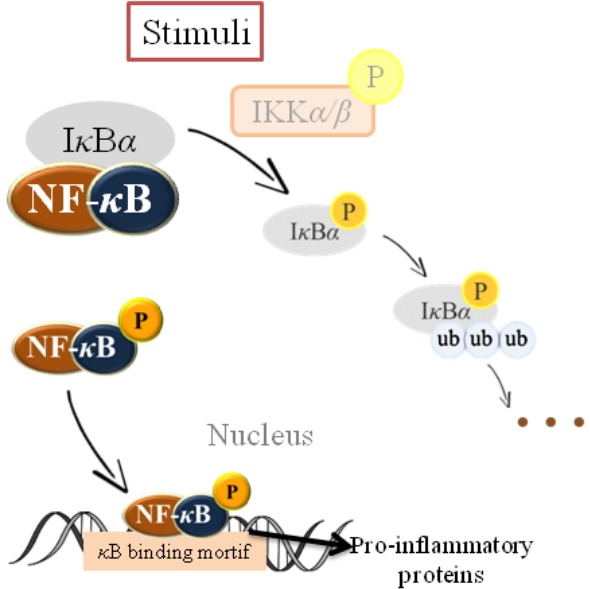Figure 2.

Inflammatory responses to a wide variety of stimuli mainly attribute to up-regulation of the proinflammatory transcription factor - nuclear factor kappa B (NF-κB). Since it is a kind of redox-sensitive transcription factor, NF-κB responses to a number of stimuli including reactive oxygen species under normal circumstances, NF-κB is sequestered in the cytoplasm by binding to the inhibitory protein called inhibitor of kappa B (IκB). Besides, the IκB kinase (IKK) complex is the signal integration hub for NF-κB activation, its main role is integrating signals from all NF-κB activating stimuli to catalyze the phosphorylation of various IκB and NF-κB proteins. After activation by stress, diet alteration, free radicals, inflammatory stimuli, cytokines and the presence of carcinogens, NF-κB translocates to the nucleus, and then induces the expression of different inflammatory cytokines and many other genes related to cellular transformation, invasion, metastasis and inflammation.
